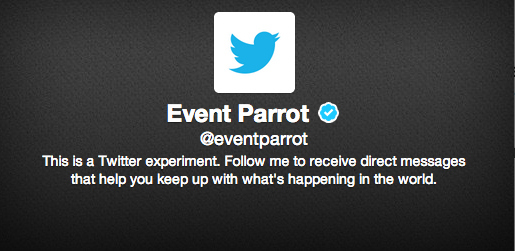If you're one of the 30 million Facebook users who like or follow David Beckham you may have seen something unfamiliar appear in your feed yesterday:
I just got this notification on Facebook???

roxanne marquez
@roxybebop
I just got this notification on Facebook???

This sort of real-time notification is a first for Facebook, which confirmed to BuzzFeed that it is "testing various notification types to help people discover content that might be relevant to them." According to a Facebook spokesperson, the Beckham notification was only sent to people who've connected to, or "Liked," Beckham's page.
While the Facebook has yet to detail what other kinds of its "various notifications types" it's experimenting with, it's not hard to imagine the service pushing out a broader series of notifications to users based on their declared interests, data from their friends and connections, or even serving up its own version of breaking news alerts.
This is the latest in a series of attempts by Facebook to reposition itself as the center of the live, real-time internet. And it comes just as Twitter is reasserting itself as the leading source for breaking news online, through similar notifications:

Though Facebook and Twitter operate on largely different planes, and rarely engage head-on, the desire to be the internet's destination for news and events as-they-happen has sent Facebook on an aggressive campaign over the past few months, pitching journalists, advertisers and users on its real-time utility and the vastness of its live "conversations." Notifications would appear to be the next step in that plan and, given the platform's mammoth audience and reach, it has the potential to be an important one.
Just yesterday, Facebook announced that nearly three quarters of a billion users come to the site each day. The 30 million people that like Beckham's page on Facebook account for over ten percent of Twitter's total monthly active user base. If Twitter sent a message to 30m users, it would be a huge story. These Facebook notifications came and went, and hardly anyone noticed.
And yet, Facebook still finds itself unable to clear an important perception hurdle: Facebook doesn't feel public in the way Twitter does. It's for this reason that Facebook notifications, while similar in style, will ultimately serve a different purpose from Twitter's. While Twitter is looking to notifications to solve the company's perceived growth problem and bring casual users back into to the service on a regular basis, Facebook's notifications would ideally do the opposite, reminding users of the world outside Facebook's walls and giving them a platform from which to view it.
